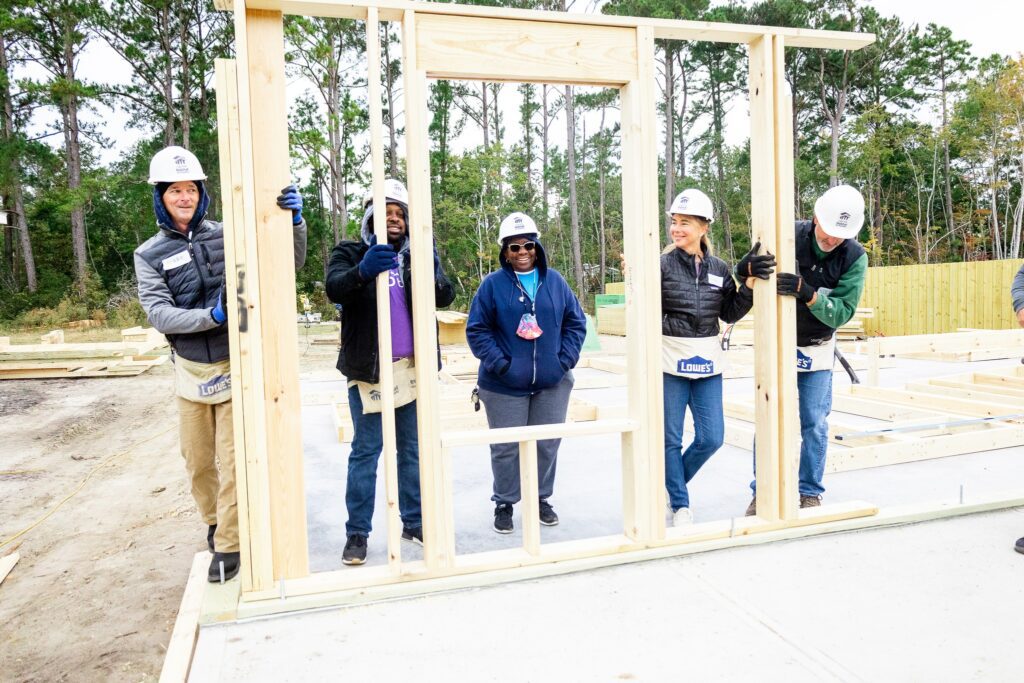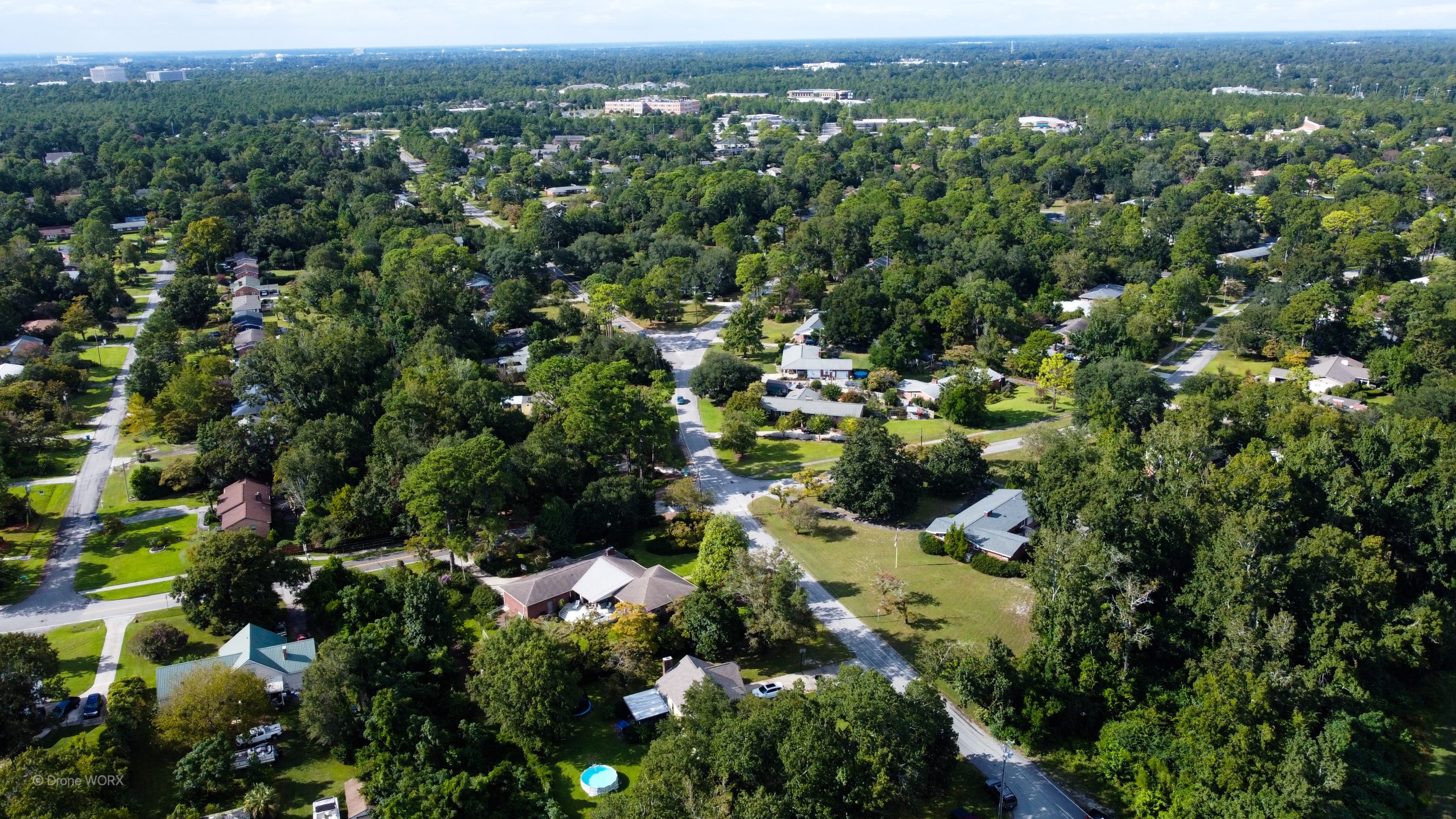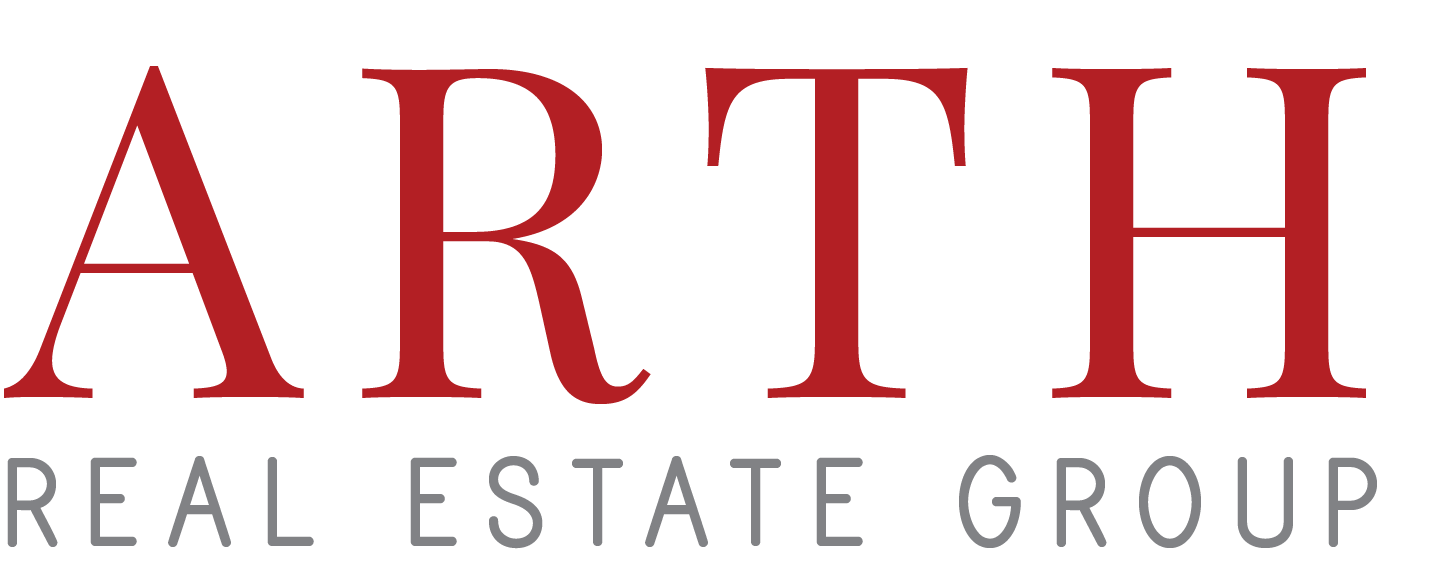
If you think Wilmington home prices are too inflated, imagine the sleepless nights for those in the affordable housing industry.
The team at Cape Fear Habitat for Humanity is coming up with creative ways to get land, build and repair homes, and keep costs affordable.
We spoke with Cape Fear Habitat for Humanity’s new Executive Director Lauren McKenzie to ask, “How in the world are you doing it?”
The solutions she and her team have come up with are so inspiring. BRB while we at the Arth Real Estate Group Team go and grab our hammers to come help!
Here are three things you need to know about what’s happening with Habitat in our community right now:
Rising Land Costs
According to McKenzie, Cape Fear Habitat has more than tripled its land budget in the last four years. Prices were already on their way up and then soaring inflation after 2020 steeply affected rates. The prices for single lots, she said, have tripled.
“We aim to make houses that are not valued at more than 30 percent of someone’s income, but that is becoming increasingly more difficult,” she said. While the land is more scarce, construction prices soared during the pandemic.
Habitat currently relies on land and monetary donations, volunteers giving their time and energy to help build, grants, and an income stream from their several local Restore locations. But one thing standing in between Habitat’s growth goals is the availability of land at a moderate to low cost.
A New Opportunity to Repair
After hurricane Florence in 2018, Habitat jumped into the home repair business. The organization used donations and volunteer manpower to help with critical home repairs. “At Habitat, we don’t only want to build, but preserve what we have built and preserve the values of those homes,” Lauren said.
The board recently voted to make the rebuilding component of Habitat a permanent fixture. This will allow Habitat to focus on creating wealth for families and have something they can pass along and give to the next generation by repairing the home they do have. Think homes where the safety and viability of the home as a long-term asset are at stake.
Rebuilding will focus primarily on flooring, drywall, kitchen and bathroom rehab, plumbing and electrical, among other issues. While the new homeownership qualifications for Habitat require the future homeowners to put in sweat equity, this rebuild program requires sweat equity and repayment on a sliding scale as well.
The Economically Efficient Pre-Build
To combat rising costs at job sites, Habitat has expanded to a new large industrial facility to bring volunteers. While inclement weather previously had the power to shut down a construction day for volunteers, today Habitat is pre-assembling parts of homes indoors in a warehouse. The very first pre-built home was completed this summer in New Hanover County. This new system will keep supplies in one place and reduce waste and costs as well.
There are many more exciting projects happening now at Cape Fear Habitat For humanity. To learn more follow Habitat on social media and on their website.




